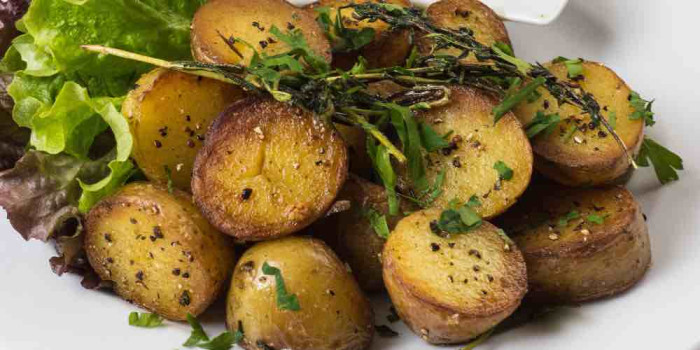By W. Gifford-Jones, MD and Diana Gifford-Jones ——Bio and Archives--August 5, 2023
Health and Medicine | CFP Comments | Reader Friendly | Subscribe | Email Us

Aristotle’s doctrine of the golden mean lauds the middle ground of two extremes: excess and deficiency. But not everyone follows this sage advice. And not all vitamins and minerals send clear signals of absence or excess. This week, a look at potassium, the third most abundant mineral in the body.
People, animals, and plants all depend on potassium for essential functions. Depleted soil requires potassium to be replaced with fertilizer. Young animals lacking potassium will quickly die. In people, there’s danger in either too much or too little potassium. But a healthy diet, including healthy drinks, is the best approach.
The American Heart Association recommends 3,400 milligrams (mg) of potassium per day for men and 2,600 mg per day for women. A typical banana provides about 400 mg. A cup of orange juice offers about 500 mg. A serving of broccoli has about 450 mg. A large baked potato can pack in 950 mg!
Potassium is like fuel to the electrical systems in the body – mostly in muscle cells, but also bones, the liver, and red blood cells. It helps operate nerve signals and muscle contractions. Potassium also helps manage fluid levels and stabilize blood pressure. A deficiency can lead to muscle cramps and irregular heartbeat. Low potassium levels, especially when combined with high sodium intake, elevate the risk of hypertension.
An extensive body of research has shown that a potassium-rich diet has big benefits.
Lowering the risk of stroke is one of them. An Italian analysis of cohort studies involving nearly 250,000 adults found “a 1,640 mg per day higher potassium intake was associated with a significant 21% lower risk of stroke.”
The U.S. National Institutes of Health reports higher potassium in the diet also reduces the incidence of kidney stones. “In a cohort of 45,619 men aged 40 to 75 years with no history of kidney stones, those with the highest potassium intakes (≥4,042 mg/day on average) had a 51% lower risk of kidney stones over 4 years of follow-up than those with the lowest intakes (≤2,895 mg/day).”
“Similarly,
in over 90,000 women aged 34–59 who participated in the Nurses’ Health
Study and had no history of kidney stones, those who consumed an average
of over 4,099 mg of potassium per day had a 35% lower risk of kidney
stones over a 12-year follow-up period than those who averaged less than
2,407 mg of potassium per day.”
There’s research suggesting that potassium supports bone health and helps lower the risk of developing type 2 diabetes.
It sounds so good. But can you get too much of a good thing? People with weak kidney function or taking certain medications need to be careful and consult with their doctors.
Who else needs to be careful?
Aristotle could not have imagined the number of soft drinks consumed by today’s society. The average American drinks 45 gallons (170 liters) of pop each year. Even at the average, that’s excessive amounts of glucose, fructose and caffeine robbing the body of potassium. There’s an established connection between too much soda and potassium deficiency.
Patients don’t always confess their excesses of soda and few physicians take the time to ask. Doctors can diagnose a potassium deficiency from blood work. But it is more difficult to measure potassium in muscle and bone cells.
The best recommendation is a healthy dose of common sense. Eat a balanced diet that is high in potassium and cut out the sugary drinks. Another piece of advice from Aristotle, “Good habits formed at youth make all the difference.”
Sign-up at www.docgiff.com to receive our weekly e-newsletter. For comments, contact-us@docgiff.com. Follow us on Instagram @docgiff and @diana_gifford_jones
View Comments
W. Gifford-Jones, MD is the pen name of Dr. Ken Walker, graduate of Harvard Medical School. Diana Gifford-Jones is his daughter, a graduate of Harvard Kennedy School. Their latest book, “No Nonsense Health” is available at: Docgiff.com
Sign-up at DocGiff to receive our weekly e-newsletter. For comments, .(JavaScript must be enabled to view this email address). Follow our new Instagram accounts, @docgiff and @diana_gifford_jones
.